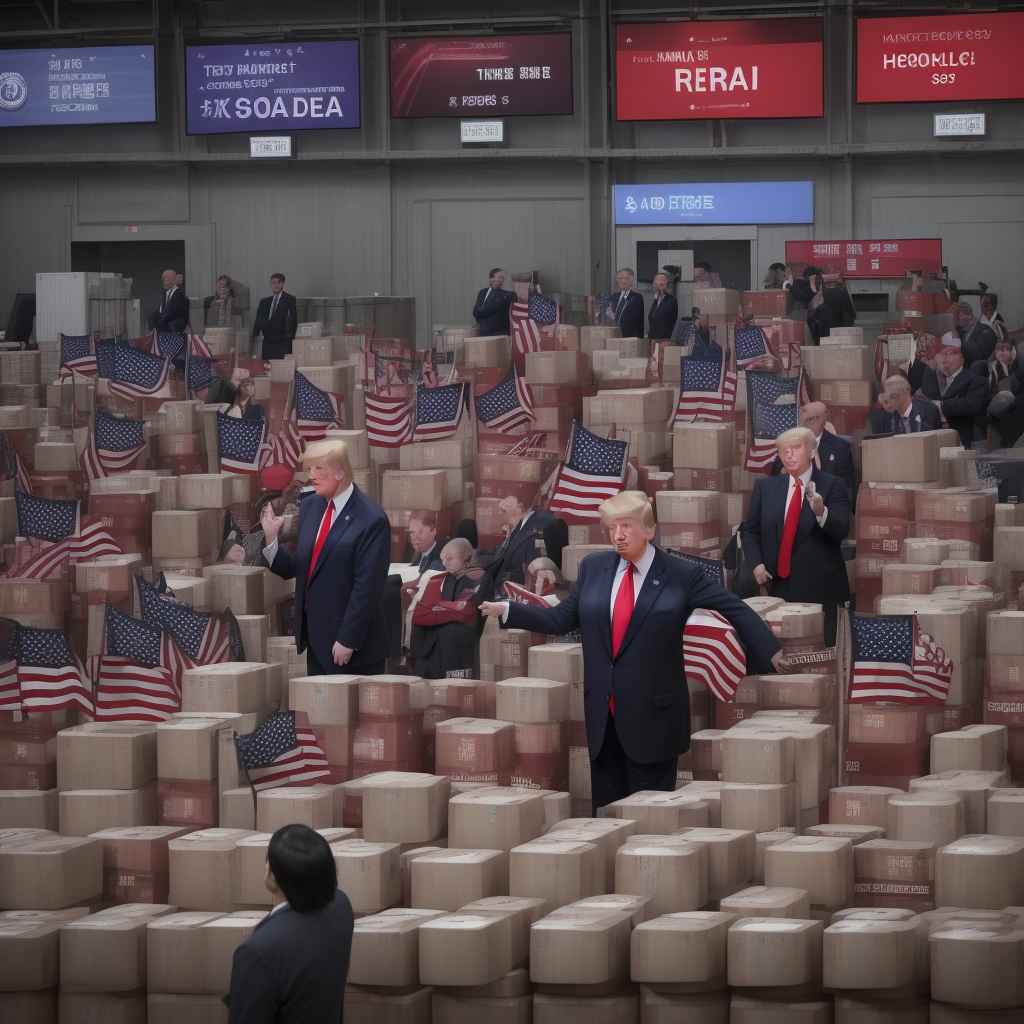
Global Trade Turbulence
US Imposes Reciprocal Tariffs on China, EU, Amid Global Trade War Fears
In a move that has sent shockwaves through global financial markets, the United States has imposed reciprocal tariffs on China and the European Union, escalating a trade war that has been brewing for months.
The tariffs, which took effect on April 6, target $3 billion worth of Chinese goods, including electronics, machinery, and textiles. The EU, meanwhile, will face tariffs on $7.5 billion worth of American goods, such as aircraft, automobiles, and whiskey.
The move is a direct response to tariffs imposed by China and the EU on US goods, which the Trump administration has deemed "unfair" and "reciprocal." The tariffs are part of a broader strategy to address what the administration sees as a growing trade deficit and to level the playing field for American businesses.
The decision has sparked fears of a global recession, with many economists warning that the trade war could have far-reaching consequences for the global economy. Stock markets around the world have been volatile in recent days, with the Dow Jones Industrial Average falling over 200 points on April 5, the day before the tariffs took effect.
"This is a dangerous game that the Trump administration is playing," said Mark Zandi, chief economist at Moody's Analytics. "The tariffs will likely have a negative impact on the US economy, and could even trigger a global recession if other countries respond in kind."
The EU has vowed to retaliate against the US tariffs, with European Commission President Jean-Claude Juncker warning that the move would "not be taken lying down." China, meanwhile, has expressed "strong dissatisfaction" with the US decision, and has threatened to take "necessary measures" to protect its interests.
The trade war has also sparked concerns about the impact on American consumers, with many experts warning that the tariffs will lead to higher prices for goods and services. The National Retail Federation has estimated that the tariffs will cost American consumers over $2 billion per year.
Despite the growing concerns, the Trump administration remains committed to its trade agenda, which it sees as a key part of its broader strategy to boost American economic growth and create jobs.
"We are not going to back down from this fight," said White House trade advisor Peter Navarro. "We are going to stand up for American workers and American businesses, and we are going to make sure that our trading partners treat us fairly."
The trade war is likely to continue in the coming weeks and months, with many experts predicting that it will be a long and difficult process to resolve. In the meantime, investors and consumers around the world will be watching closely to see how the situation develops.